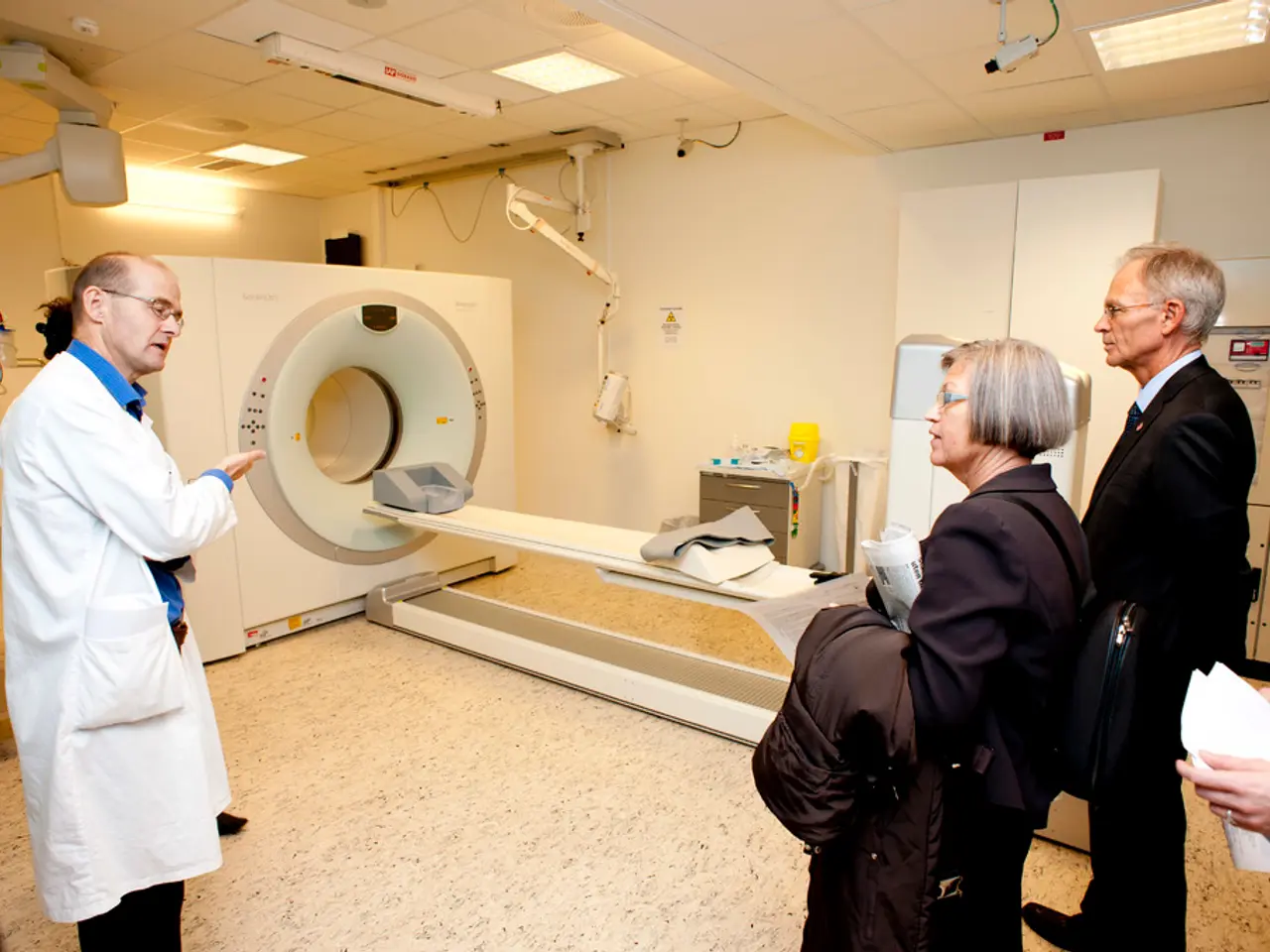Research Finds a Correlation Between AI Usage by Doctors and Reduced Patient Trust Levels - Investigation: Reduced Confidence in Physicians Employing Artificial Intelligence
In a study conducted by psychologists from the University of Würzburg and Charité Berlin in Germany, it was found that patients in the USA tend to have less trust in doctors who use AI for administrative tasks. The study, published in the scientific journal "JAMA Network Open", involved 1,276 adult participants from the USA.
The participants were shown advertisements for medical practices and asked to evaluate different attributes of the doctors depicted. The only difference between the ads was a statement indicating whether the depicted doctor used AI for administrative, diagnostic, or therapeutic purposes.
The study found that patients rate doctors who work with AI less positively. Empathy ratings for physicians dropped when AI was used for administrative purposes, with scores decreasing from 4.00 to 3.80 out of 5. Trustworthiness scores similarly declined, from 3.88 to 3.66 with administrative AI use. Willingness to book appointments decreased, even though administrative AI is generally seen as less invasive.
Doctors using AI in any capacity were perceived as less competent compared to those not mentioning AI. One reason for this negative image could be the fear that doctors might blindly follow AI, according to the authors.
However, the study did not find any significant differences in patient evaluations of doctors who used AI for diagnostic or therapeutic purposes compared to those who did not. This suggests that the skepticism is primarily focused on the use of AI for administrative tasks.
The underlying reasons for this skepticism likely relate to broader concerns about privacy, transparency, and fairness. Patients worry about how sensitive health data is stored, accessed, and used by AI systems, which require large amounts of personal information to function properly. Additionally, there is a strong desire for transparency about AI’s role and limitations in their care, as well as assurance about the AI’s validation for safety and accuracy.
Furthermore, as AI can be seen as reducing human involvement, patients express discomfort when they perceive less direct human engagement, even if AI is only used administratively. This reduction in perceived human touch may reduce perceived empathy and trust.
In summary, patients’ lower trust when doctors use AI for administrative tasks stems from concerns about privacy, lack of transparency, perceived reduced empathy, and skepticism about AI’s role and competence in healthcare, even outside diagnostic or therapeutic contexts. Addressing these issues with clear communication, robust privacy protections, and transparency is essential to rebuild trust around AI use in healthcare administration.
On a positive note, the study suggests that AI could make healthcare more human by allowing doctors to spend more time with their patients. If doctors inform their patients about the use of AI, they should aim to address potential concerns and highlight possible benefits, according to the authors. This could help to alleviate some of the concerns and improve patient trust in the long run.
- Despite the potential benefits of artificial intelligence (AI) in healthcare, a study published in "JAMA Network Open" reveals that patients in the USA have less trust in doctors who use AI for administrative tasks.
- According to the study, empathy and trustworthiness ratings for physicians drop when AI is used for administrative purposes, indicating that patients are less likely to book appointments with such doctors.
- The skepticism towards AI in healthcare administration is primarily due to concerns about privacy, transparency, and fairness, with patients worried about the handling of sensitive health data and the potential for reduced human involvement, leading to less perceived empathy and trust.








